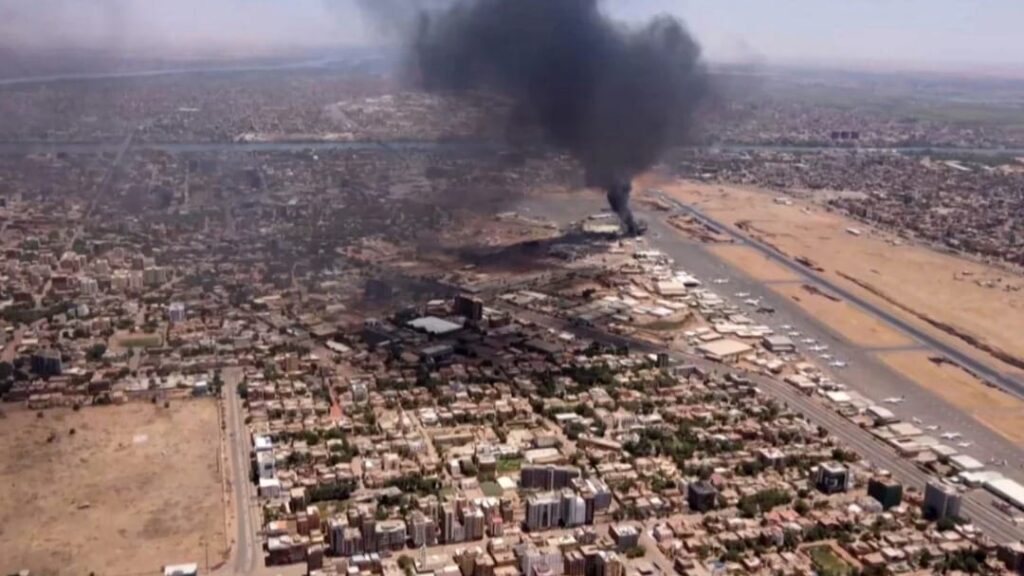CAIRO, EGYPT- The Sudanese Armed Forces launched an attack on Rapid Support Forces (RSP) bases in Khartoum on Thursday 26th September 2024. Smoke was seen rising from the capital city at Dawn and clashes were heard as the RSP forces clashed with the Sudan Army.
The Rapid Support Forces, a paramilitary group in Sudan, have been struggling for power with the Sudan Army since April 2023. This has resulted in a severe humanitarian crisis due to the widespread destruction and the death of millions of people.
Several African countries have had to experience civil wars and insurgencies with rebel groups causing chaos in the countries for decades. Many African countries have however emerged victorious from these attacks.
What did they do that Sudan could carry on bringing about reasonable peace in the country? African countries have used different strategies as seen below.
Peace Agreements
These are treaties or agreements signed between conflicting parties in countries undergoing civil war. The conflicting parties agree to lay down their weapons to ensure peace in the countries. An example is the agreement on a permanent ceasefire between the Government of Uganda and the Lord’s Resistance Army/Movement. This agreement was signed in February 2008 in Juba, Sudan. It called for an end to the war that was taking place in Northern Uganda that brought about loss of lives and general destruction. Another example is the comprehensive ceasefire Agreement between the government of the Republic of Burundi and PALIPENHUTU-FNL signed in June of 2006.
International Peace Keeping Missions
International organisations have been at the frontline when it comes to fighting for peace in African countries. They have put their feet down in countries that are undergoing civil wars. They focus on disarmament, demobilization, and restoration of law in war-torn countries.
The United Nations (UN) is the prominent body when it comes to peacekeeping missions where it authorizes and oversees these activities. The UN carries out missions in Africa as well for example in Central African Republic (MINUSCA). Regional organizations in Africa lend a hand to countries facing civil wars.
For example, the African Union (AU) and the Economic Community of West African States. The UN provides funding, logistics, and other support to the African Union to carry out peacekeeping in the continent through partnerships like the African Union-United Nations Hybrid Mission in Darfur (UNAMID).
Post-Conflict Economic Reconstruction
This is when a country takes the initiative to restructure its economy after conflict. The reconstruction of economies involves activities like the distribution of relief assistance, restoration of infrastructure facilities, reestablishment of social services, and essential structural reforms as well as private sector development. The governments carry their economies to their initial positions.
In a few instances, the economies developed greater than they were before the wars. Rwanda for example has achieved significant progress since the 1994 genocide that saw the loss of lives of over one million people.
The country focused on rebuilding existent intuitions that led to economic improvements. Rwanda has also benefited from foreign aid. According to the 2009 World Bank report, IDA extended US$1,054 million in credits and grants to Rwanda. With this support, a strategy for the private sector was adopted followed by the promotion of exports. Another example is after the Accra Comprehensive Peace Agreement in 2003, Liberia used reconstruction investment along with foreign assistance to grow its economy through economic diversification.
National Dialogues
National dialogues, according to the Inclusive Peace Organisation, are official negotiation forums typically convened to address issues of national concern often long-standing conflict. They resolve political crises and pave the way for political transitions and sustainable peace. They usually reach peace agreements. The Egyptian National Dialogue in May 2023 is an example. It was held for national reconciliation in Egypt after the overthrow of the country’s first democratically elected civilian president, the late Mohammed Morsi. Other examples include the South Africa, Convention for a Democratic South Africa (CODESA) which took place between 1991 and 1992, and the Togo, Inter-Togolese Dialogue in 2006.
Amnesty and Reintegration programs
Amnesty is an official pardon granted to people who have been convicted of political offenses. This also involves the reintegration of rebels into civilian life. This limits the application of criminal processes and some civil cases but ensures that peace is sustained. After the genocide for example Rwanda allowed people who confessed to the crimes that were not so grave to rejoin society. These programs bring to the surface the need for peace and the need for justice. However, there is constatation that amnesties are incompatible with the African Charter. This route is thus rarely used in ensuring peace in countries.
https://www.africanexponent.com/civil-wars-in-africa-what-has-worked-to-bring-about-reasonable-peace-in-the-continent/


